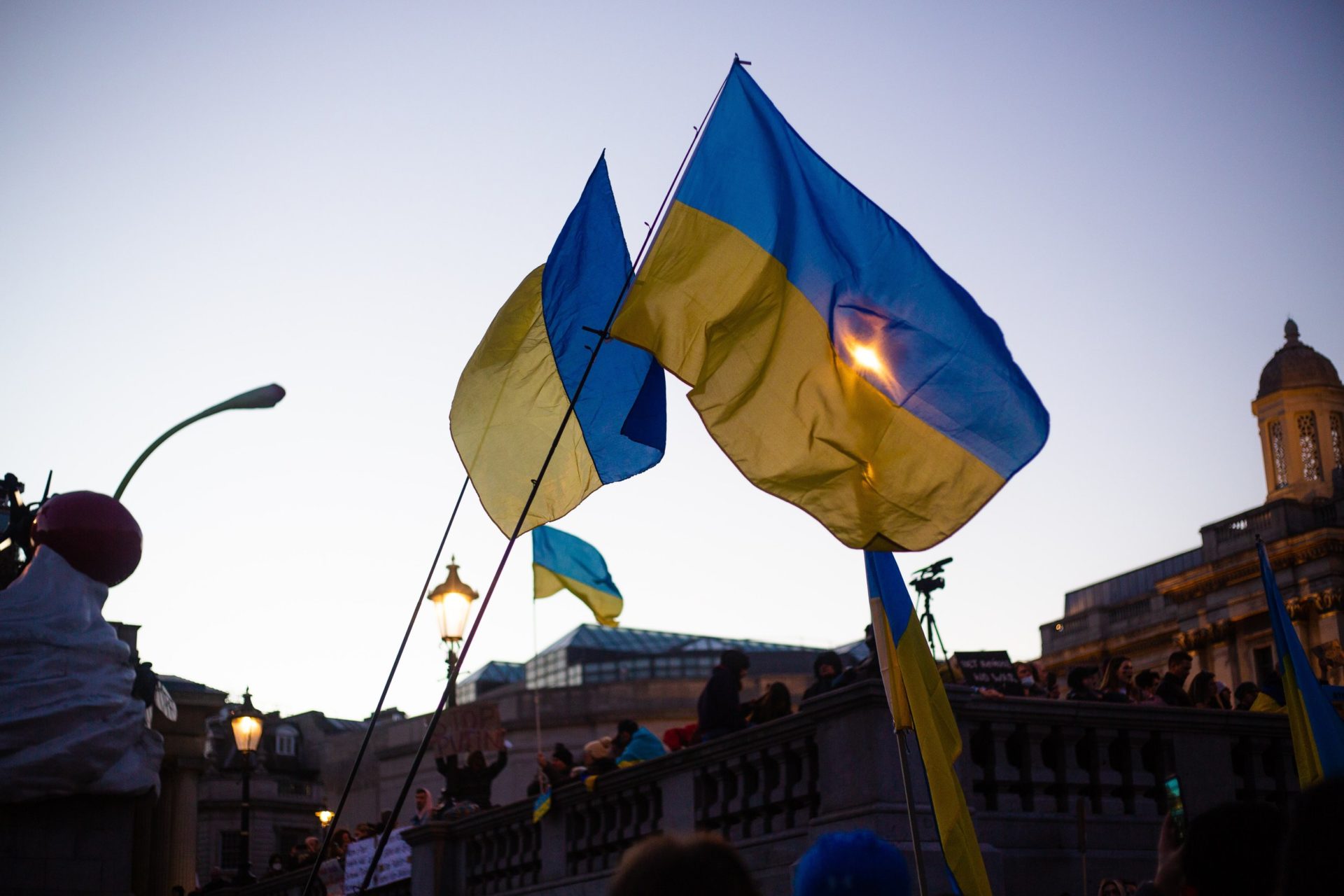
After Vladimir Putin’s disastrous decision to invade Ukraine, the U.S. responded with aggressive sanctions for Russian aggression, as well as an outpouring of humanitarian and military support to Ukraine. Most Americans supported this response to a brutal dictator’s assault on a sovereign nation, at least initially. However, what the American public didn’t know was that, behind the scenes, a battle was being waged to determine just how far the U.S. would go in its support of Ukraine. This battle was waged by a force as powerful in American politics as an army is on the battlefield: lobbyists.
Before the war even began, pro-Ukraine lobbyists and public relations experts in the U.S. had embarked on an extraordinary campaign to garner U.S. support. In fact, Ukraine’s agents in America, registered under the Foreign Agents Registration Act (FARA), reported contacting politicians, the media, and other powerbrokers more than 13,000 times in 2021. As chronicled in a forthcoming brief from the Quincy Institute, which I authored, Ukraine’s agents in the U.S. were working tirelessly to promote Ukraine’s security and energy concerns. Most notably, they worked to stymie the Russian Nordstream 2 pipeline that would have cost the Ukrainian energy sector billions of dollars.
However, at nearly every turn, this sizable Ukrainian lobbying and influence operation was being challenged by a host of lobbying and public relations firms representing Russian interests in the U.S. From firms representing Russian oligarchs, and Russian banks that were being considered for sanctions, to firms lobbying in support of the Nordstream 2 pipeline, Russian interests were extremely well-represented in this lobbying battle before the Ukraine war.
The Russian side of the fight was well-aided by former members of Congress, who went from representing their constituents in Congress to lobbying on behalf of Russian oligarchs, Kremlin-connected banks, and energy companies. For example, earlier this year when Russia’s Sovcombank became the target of sanctions legislation in Congress, the Russian bank quickly signed a contract with Mercury Public Affairs, which put Senator David Vitter (R-La.) and former Representative Toby Moffett (D-Conn.) to work lobbying on the bank’s behalf. In one letter to congressional offices, Vitter explained that Sovcombank would be an “extremely counterproductive sanctions target” because of its “deep ties to US and western institutions.”
With this firepower on the Russian side before the invasion of Ukraine, Russian interests arguably had the upper hand in this lobbying battle. For instance, in 2021 the Biden administration lifted sanctions on the Nordstream 2 pipeline, and in previous years, sanctions were lifted on several Russian firms that had hired D.C. lobbyists.
Although, when Putin made the fateful decision to invade Ukraine, any advantage that Russia’s lobbyists had over their pro-Ukraine rivals seemingly evaporated. The U.S. issued swift and severe sanctions against Russian oligarchs and its banking and energy sectors. This, in turn, led to a rash of lobbying and public relations firms having to sever ties with their Russian clients.
Now unopposed, Ukraine’s lobbyists quickly fought for and won a historic amount of support from the U.S. So far, the U.S. has committed $55 billion in assistance to Ukraine, including more than $6.1 billion in military weapons and equipment. This extraordinary amount of weaponry includes armed drones, anti-aircraft missiles, heavy artillery, and even a truck-mounted anti-ship missile system that the U.S. military doesn’t even operate. While the Ukrainian military might need the weaponry now, arms sales experts at the Stimson Center caution that this enormous amount of weaponry pouring into Ukraine with little oversight or monitoring of where the weapons are going, “will pose a security challenge long after the guns fall silent.”
The lobbying push that helped pave the way for this U.S. support was largely aided by the pleas of Ukrainian President Volodymyr Zelenskyy and, somewhat ironically, by firms who previously worked on behalf of Russian interests. Mercury Public Affairs, for example, dropped their representation of Sovcombank and, following the invasion, signed a contract to represent a Ukrainian non-profit organization that’s focused on economic development. Qorvis Communications had also previously worked on behalf of Russian interests and then, after the Ukrainian invasion, began pushing for aid to Ukraine.
These firms that previously represented Russian interests, along with others that began working for Ukraine pro-bono, joined a remarkably zealous cadre of firms that had been working on behalf of Ukrainian interests prior to the invasion. All of this has culminated with Ukraine currently having more than two dozen lobbying, public relations, and other firms registered under FARA to represent their interests in the U.S.–more than double the number of firms working on their behalf before the invasion. They continue to work closely with lawmakers, the media, and think tanks to ensure that American weapons keep flowing to Ukraine.
While the war wages on, Ukraine has, at the very least, won the lobbying battle in D.C.

Ben Freeman
Ben Freeman is a Research Fellow at the Quincy Institute for Responsible Statecraft. His work focuses on how foreign governments seek to influence American government and politics. This work builds upon his book, The Foreign Policy Auction, which was the first book to systematically analyze the foreign influence industry in the U.S. Previously, he was Director of the Foreign Influence Transparency Initiative at the Center for International Policy. His work has appeared in numerous media outlets, including the New York Times, the Washington Post, and CNN, and he has testified before the Senate Armed Services Committee.






